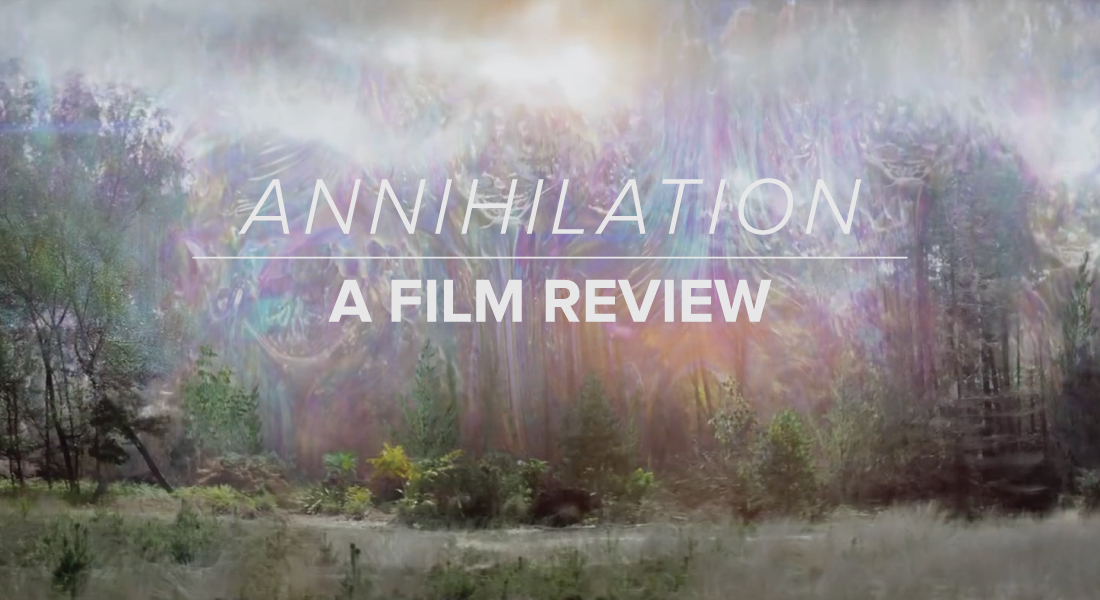
The idea of existential nihilism couldn’t be more opposed to my Biblical, Christian worldview. To think that everything we see and experience ultimately lacks purpose or significance is incredibly depressing and defeating. Why would we do anything? Why should we care? What’s the point? It creates a vacuum of hope within a world that seems to be brimming with purpose. And it’s also not what the Bible teaches. The Bible teaches that I have meaning and that Creation as a whole has thoughtful purpose. And when I view the world through this lens, I can clearly see the unmistakable evidence of a personal, omniscient and benevolent Creator. I don’t see a planet filled with souls born for no reason and governed by no hope other than arbitrary, dispassionate chance, where the only balance and order present exists simply because it was produced randomly. I see Creation, design and life, all with intrinsic value, significance and purpose.
But if I were pressed to imagine a world without a Creator, defaulting nihilism to reality, I would imagine a world similar to what is found in the ambitious new film by Alex Garland, Annihilation.
The film is loosely adapted from the popular fictional series of the self-same name penned by Jeff VanderMeer. The story follows soldier/Johns Hopkins biologist Lena (Natalie Portman) as she and a team of female scientists seek to unlock the secrets of “The Shimmer,” a beautiful and mysterious phenomenon (think giant rainbow wall of dangerous energy) that is slowly engulfing an uninhabited section of coastal Florida. Though numerous teams have been sent into it to determine it’s nature, communication is always quickly lost, and none have returned to tell what awaits inside. It’s up to this small team of scientists to discover the phenomenon’s origin, and to stop it’s imminent spread across the state, the country and the world.
As the team plunges into the unknown, they are met with a world that becomes increasingly strange and disorienting the deeper they venture. Time passes differently; their compasses don’t work, and their thoughts and memories feel scattered. And the normal swamp types of plants and animals have been changed, twisted into new things that are at times beautiful and at others, the stuff of nightmares. Director Alex Garland crafts a lush, eerily familiar world that is both gorgeous and terrifying. Using a broad palette of lushly saturated colors, he has painted a unique vision of a dystopian future, where overgrown ruins and vibrant jungle are all that remain of abandoned neighborhoods and towns.
While the action in this film is used fairly effectively to keep the storyline tense, it’s mainly the standard sci-fi fare (jump scenes, monsters and ominous music). The main attraction here isn’t the plethora of horrible creatures that seem to lurk behind every corner, nor other-worldy landscape. What takes center stage in this tale is the vast unexplored psychological landscape of our protagonist.
While each woman on the expedition is haunted, flawed and broken, none are more so than Lena. Still reeling from the sudden and mysterious reappearance of her long-missing husband, Kane (Oscar Isaac) and his subsequently dire medical conditions, she is still dealing with the traumatic effects of her own extramarital affair with a colleague (while no explicit nudity is present, the relationship is shown on a few occasions) during her husband’s long absences due to military deployment. And now she must battle her own demons, the elements and the clock to try and find the answers that will save her husband and the world.
And it’s against the visceral backdrop of her own personal failures that we start to understand the lens through which she, her team and the filmmakers view life: the actions of an impersonal, dispassionate universe are random. Cosmic events happen without purpose or malice. And the inevitable destruction they bring into our lives is something humanity must deal with on an individual and societal level. As the world is being destroyed (or remade) by the mysterious “Shimmer,” do we confront it; do we rage against it, or do we make peace with the change and embrace it as inevitable and not evil? At a cosmic level, entropic destruction is as inevitable as gravity. How should humanity react to it? But even more existentially, as the team’s psychologist Dr. Ventress (Jennifer Jason Leigh) observes, self-destruction seems to be pre-programmed into us on a cellular level. It’s human nature to veer towards destruction. We constantly seek to bring imbalance to healthy situations. We sabotage our own healthy marriages. We undermine our perfect, comfortable jobs. We seem inexplicably drawn to breaking and being broken. And even if we do decide to confront it and rage against it, destruction will come eventually.
And this is actually a much more nuanced difference to the gospel message than it might seem. The Bible tells us that entropy will run its course on society. As sinfulness continues to rise, the wrath of God will eventually reach it’s boiling point and be poured out onto the world. And on an individual level, if left to our own natural, sinful tendencies, hurt and destruction are the inevitable outcomes. As this film postulates, destruction is simply change in varying degrees. And if that is how you define change, then change is inevitable; all we can do is decide how we will react to it. And this would be absolutely true BUT FOR CHRIST.
Jesus came to save humanity from it’s inevitable self-destruction. And He comes to the individual to present Himself as the answer to our seemingly inevitable tendency to break the good things around us. He is both willing and able to redeem the brokenness that we cause and experience, to bring about a hope-filled end. And His solution is much more existential than symptomatic: I lovingly and sovereignly made you, and I crafted you for a purpose. To fulfill a cosmic plan that was pre-ordained since before the beginning.
For the Christian, Annihilation paints a fairly bleak view of life. But I think it’s necessary for believers to be confronted with such despairing perspectives. We should deeply consider the views of the non-Christians around us. And not for the purpose of crafting our best apologetic responses so as to win arguments and gain respect. We should understand the truly hope-less views of the people in the world around us. And we shouldn’t do it as a once-and-for-all type exercise. New arguments and worldviews combatting God’s true nature are constantly popping up. As the salt and light, we should constantly be thinking through the implications of differing worldviews so as to better present their adherents with a thoughtful, truthful and compassionate response to their beliefs.
While the language, violence and implied sexual content in this film may be unpalatable to many believers, confrontation with a nihilistic worldview should open up a healthy dialog among believers, as well as informing our understanding of a worldview that logically goes hand in hand with atheism, a belief that is more and more becoming our culture’s default worldview.
And while the story is engaging, intense and well crafted, and the visuals seamlessly blur the lines between tangible and surreal, the philosophical implications of the film are this: The result of the natural world running its course is unavoidable and indifferent destruction. What a perfect place to begin a conversation about the purpose, the plan and the salvation that God has in mind for every individual person that has ever been and ever will be.
Annihilation is Rated R for violence, bloody images, language and some sexuality.
Image credited to Paramount Pictures
CalvaryChapel.com does not necessarily endorse or agree with every message or perspective in the diverse film reviews posted. By providing these film reviews, we hope to help you stay informed of important events and conversations taking place in the world that are relevant to the Christian faith.









